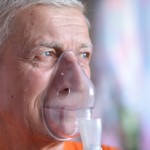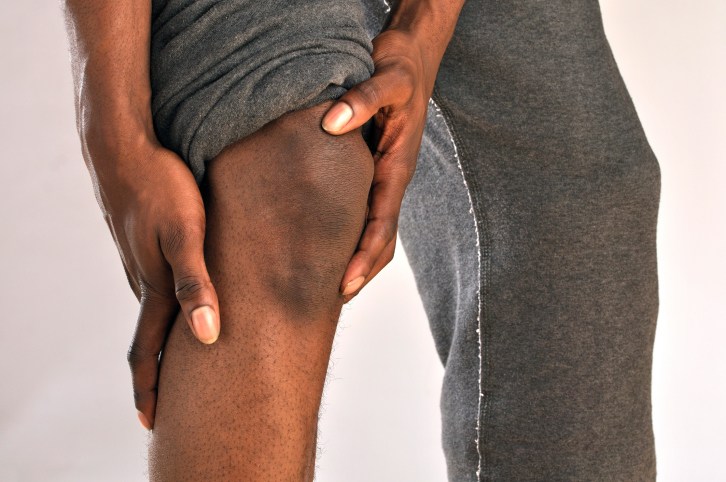Dyspnea (shortness of breath) in asthma, COPD is important for diagnosis
 Dyspnea (shortness of breath) is found in asthma and COPD and is an important symptom for diagnosis. Shortness of breath severity can range from person to person, but is commonly described as tightening of the chest or feelings of suffocation. Shortness of breath can occur for many reasons, and is often a symptom of many other conditions. However, if it is tied with a respiratory disease like asthma or COPD, it can also be chronic.
Dyspnea (shortness of breath) is found in asthma and COPD and is an important symptom for diagnosis. Shortness of breath severity can range from person to person, but is commonly described as tightening of the chest or feelings of suffocation. Shortness of breath can occur for many reasons, and is often a symptom of many other conditions. However, if it is tied with a respiratory disease like asthma or COPD, it can also be chronic.
In a healthy individual, shortness of breath can occur from strenuous exercise, extreme temperatures, changes in altitude or even from obesity. If shortness of breath occurs suddenly it could be a sign of something more serious and medical attention should be sought right away.
Dyspnea in COPD
 COPD – chronic obstructive pulmonary disease – is a condition that causes breathlessness, fatigue and difficulty breathing. Even taking a few steps may be enough to worsen symptoms related to COPD. COPD damages the air sacs in the lungs, causing them to become too large, which leads to breathing difficulties as well as inflammation and irritation in the lining of the lungs – known as emphysema and bronchitis.
COPD – chronic obstructive pulmonary disease – is a condition that causes breathlessness, fatigue and difficulty breathing. Even taking a few steps may be enough to worsen symptoms related to COPD. COPD damages the air sacs in the lungs, causing them to become too large, which leads to breathing difficulties as well as inflammation and irritation in the lining of the lungs – known as emphysema and bronchitis.
Aside from dyspnea, other symptoms of COPD include:
- Tightening and pain in the chest
- Coughing
- Dizziness
- Excess mucus in the lungs
- Fatigue and feeling frequently tired
- Frequent respiratory infections
- Sputum when you cough
- Unintended weight loss
- Wheezing
Dyspnea in asthma
 Asthma is another respiratory disease that can lead to dyspnea. Dyspnea perception in asthmatics could increase the risk of asthma attacks and the more severe asthma is, the poorer dyspnea perception is.
Asthma is another respiratory disease that can lead to dyspnea. Dyspnea perception in asthmatics could increase the risk of asthma attacks and the more severe asthma is, the poorer dyspnea perception is.
One study, which looked at 71 participants that underwent induced sputum, measured nitric oxide while breath condensates were taken. Perception of dyspnea was recorded with the BORG–VAS/FEV1 slope, before and after testing, and correlated with the stages of asthma, inflammatory markers, age and depression scale.
The researchers found with the worsening of asthma dyspnea perception decreased, which was correlated with aging and depression. Airway inflammation, too, played a role in the decline of dyspnea perception.
The researchers concluded that age, depression, inflammation and severity of asthma are all factors of a worsened perception of dyspnea.
Causes and symptoms of dyspnea
There are many causes of dyspnea, from everyday activities to respiratory infections or heart-related problems. Causes of dyspnea include:
 Respiratory tract infections like pneumonia
Respiratory tract infections like pneumonia- Allergic reaction
- Asthma
- Blockage in the respiratory tract
- Blood clot
- Collapsed lung
- Interruptions of blood flow to the heart
- Heart failure
- Pregnancy
- COPD
- Interstitial lung disease
- Cardiomyopathy
- Being out of shape, or unfit
- Obesity
- Pulmonary hypertension
- Anxiety, panic attack
How a person describes shortness of breath may vary depending on the cause. Some may describe it as if they are “hungry for air” and others may indicate they “cannot breathe deeply enough.” Along with noticing shortness of breath, you should pay close attention to other symptoms that may be occurring simultaneously to help determine if the cause is serious or acute and will only last for a short matter of time.
Treatment and prevention of dyspnea
Treating dyspnea is most successful when the underlying condition is treated, like losing weight if you are obese, reducing stress and anxiety, or using an inhaler to better control asthma. These are just some examples of how dyspnea can be better managed.
Other treatments may involve the use of medications, such as bronchodilator drugs to open up the airways, anti-inflammatory drugs, opiates, anti-anxiety drugs, and supplementary oxygen.
Non-drug treatments may include respiratory rehabilitation, which involves exercise programs and therapies to help improve the use of the lungs, or even yoga, which utilizes many different breathing techniques and works as a great stress-reliever as well.
In order to determine the best mode of treatment for dyspnea, it’s important to understand what the cause of it is. If you’re concerned about your shortness of breath, speaking with your doctor can help narrow down the culprit.
Breathing difficulty? Common causes of chronic obstructive pulmonary disease (COPD)
Trouble breathing? Persistent cough or frequent chest infections? This could be chronic obstructive pulmonary disease (COPD) – the name for a collection of lung diseases including chronic bronchitis, emphysema and chronic obstructive airways disease. COPD exacerbation is not something you want to fool around with. Your body needs oxygen and you need to breathe! Continue reading…
-
Hardgainers! Training More Often Wont Give You Better Gains!!!
When browsing bodybuilding forums for some advice for skinny hardgaine
-
Understanding Bariatric Surgery
According to the Centers for Disease Control and Prevention, obesity a
-
Eating Healthy Weight Loss Plan
by Lindelwa Maseko A wise approach for natural weight loss is to ensur
-
Healthy Snack Foods: That's Not an Oxymoron
Do a little clever searching, and youll find plenty of information
-
Why Water is Wonderful for Weight Loss and Health
Water, water everywhere - and most of us arent into drinking it. Why s
-
Fast Weight Loss Diets Do They Work Or Are They A Bad Idea?
So your considering the possibility going on a fast weight loss diet?
- DON'T MISS
- Excessive Weight Loss Can Be Life Threatening
- Energy Bars: Demanded Even By Front Line Soldiers
- Popular Weight Loss Programs
- Diet Scams How To Avoid Getting Ripped Off
- Home Weight Loss Delivery: Getting Only the Best
- Weight loss surgery has few short-term complications for teens
- Overcoming Weight Loss Plateaus
- Hcg Weight Loss Provide You Confidence
- Weight Loss Online
- Top 4 Fad Diets Unveiled




